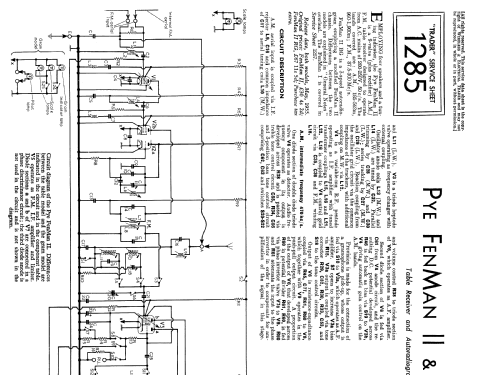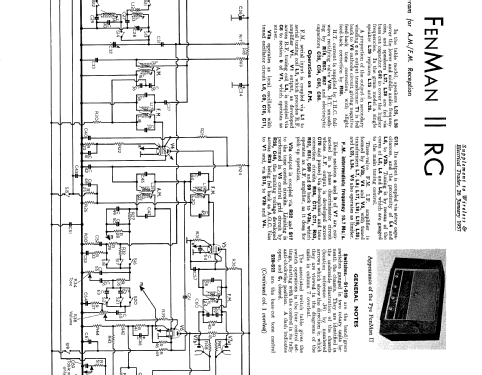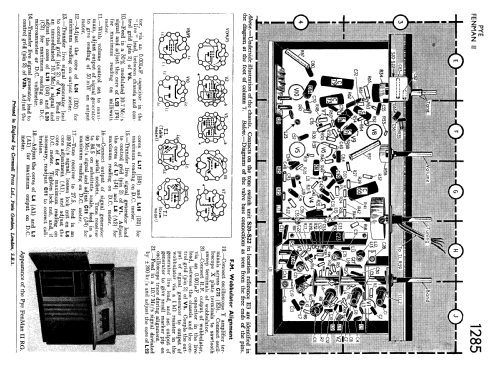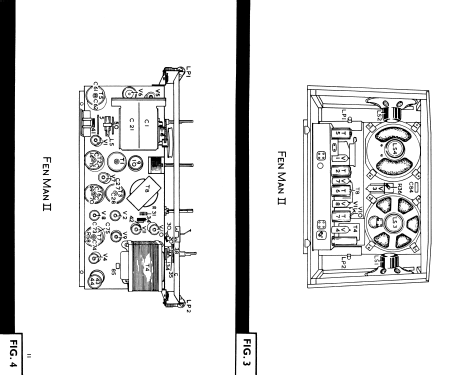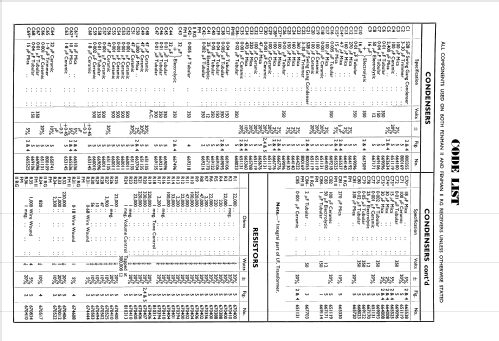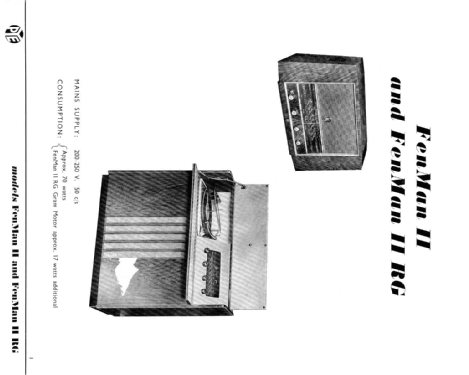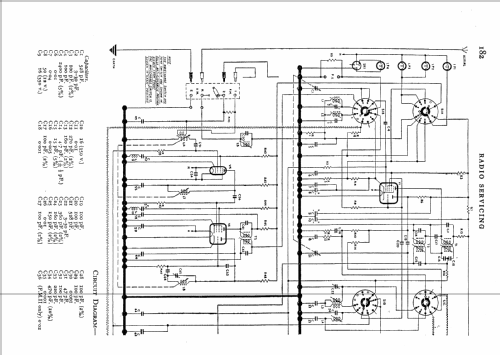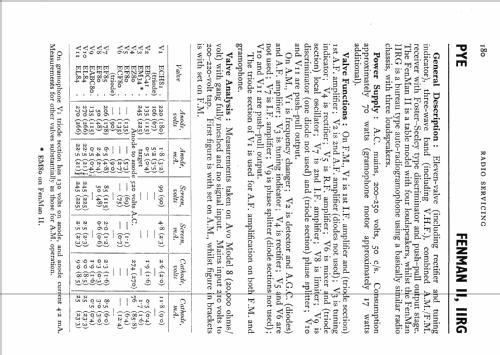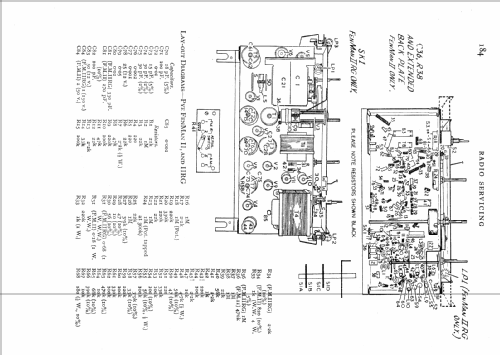Fenman 2
Pye Ltd., Radio Works; Cambridge
- País
- Gran Bretaña (GB)
- Fabricante / Marca
- Pye Ltd., Radio Works; Cambridge
- Año
- 1955
- Categoría
- Radio - o Sintonizador pasado WW2
- Radiomuseum.org ID
- 102299
Haga clic en la miniatura esquemática para solicitarlo como documento gratuito.
- Numero de valvulas
- 11
- Principio principal
- Superheterodino en general; ZF/IF 470 kHz
- Gama de ondas
- OM, OL y FM
- Tensión de funcionamiento
- Red: Corriente alterna (CA, Inglés = AC) / 200-250 Volt
- Altavoz
- Altavoz dinámico (de imán permanente)
- Material
- Madera
- de Radiomuseum.org
- Modelo: Fenman 2 - Pye Ltd., Radio Works;
- Forma
- Sobremesa apaisado (tamaño grande).
- Mencionado en
- -- Original-techn. papers.
- Autor
- Modelo creado por Peter Hoddow. Ver en "Modificar Ficha" los participantes posteriores.
- Otros modelos
-
Donde encontrará 634 modelos, 490 con imágenes y 342 con esquemas.
Ir al listado general de Pye Ltd., Radio Works; Cambridge
Colecciones
El modelo Fenman es parte de las colecciones de los siguientes miembros.
Contribuciones en el Foro acerca de este modelo: Pye Ltd., Radio: Fenman 2
Hilos: 1 | Mensajes: 4
I have just finished uploading the schematics for the Pye FenMan 2, prompted by a friend purchasing an example of this radio and needing the service information for it.
Whilst copying it and studying the FM tuner circuit, which is rather different from the typical double-triode arrangement used in many sets, I noticed that there was no immediately obvious arragement for coupling the oscillations from the triode section of the ECF80 into the pentode section. I assume that there is an internal shield between the two sections and the two sections are electrically isolated, so how does it work? I did wonder if the RF choke in the decoupling of the screen grid of the ECF80 had any bearing on the operation of the mixer? In some television tuners a small value of capacity (ca. 2pF) couples the two sections. Am I missing something obvious here?
I have included an extract of the circuit below, if anyone needs the circuit values I can add those later. All your thoughts are gratefully received!
.png)
Whilst copying it and studying the FM tuner circuit, which is rather different from the typical double-triode arrangement used in many sets, I noticed that there was no immediately obvious arragement for coupling the oscillations from the triode section of the ECF80 into the pentode section. I assume that there is an internal shield between the two sections and the two sections are electrically isolated, so how does it work? I did wonder if the RF choke in the decoupling of the screen grid of the ECF80 had any bearing on the operation of the mixer? In some television tuners a small value of capacity (ca. 2pF) couples the two sections. Am I missing something obvious here?
I have included an extract of the circuit below, if anyone needs the circuit values I can add those later. All your thoughts are gratefully received!
.png)
Mike Izycky, 03.Aug.07
